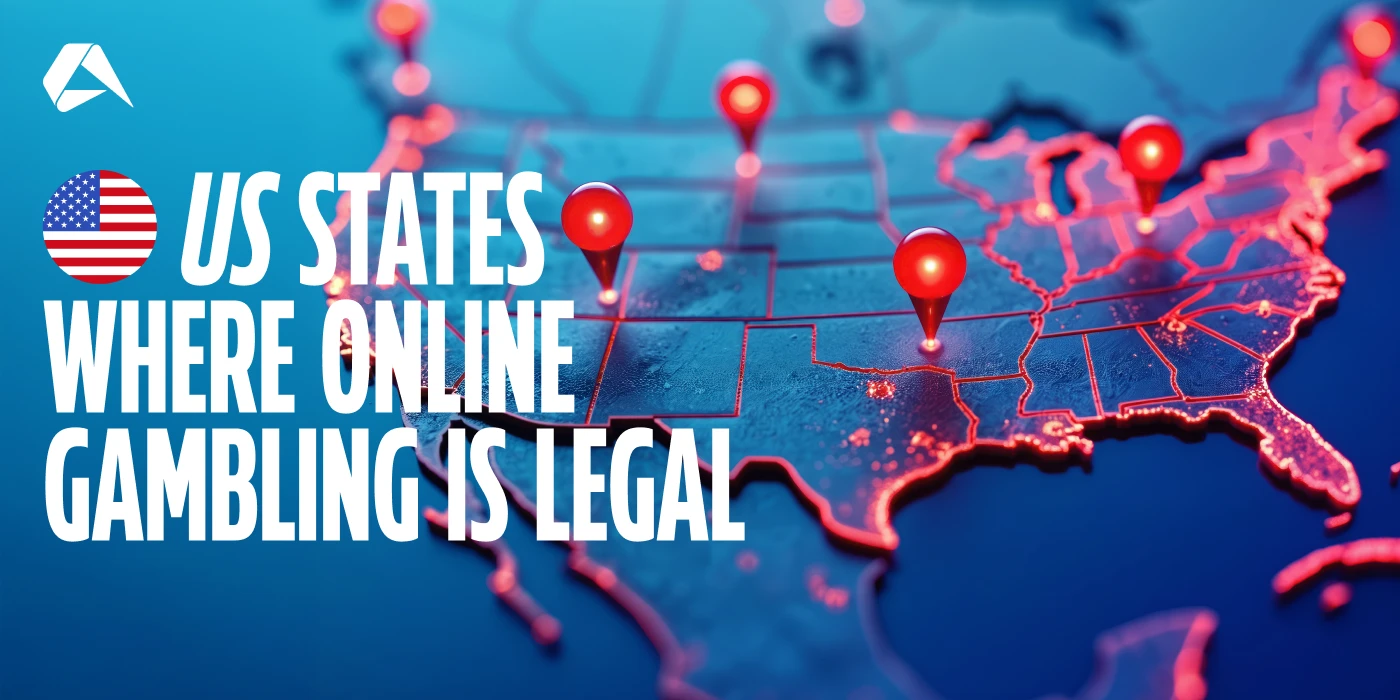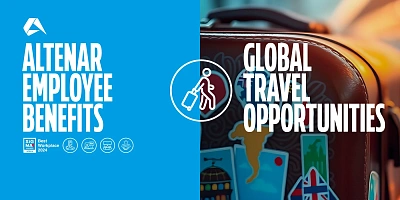Unlike Europe, there is substantial variability across state lines in the laws and regulations for online gambling in the United States of America. These differences largely stem from the US Supreme Court's 2018 ruling to overturn PASPA (Professional and Amateur Sports Protection Act), which transferred regulatory responsibility to individual states. Since then, individual jurisdictions have adopted diverse policies regarding online gambling. Some, like New Jersey and Pennsylvania, have fully embraced both online casinos and sports betting, while others either offer online sports betting alone or maintain outright prohibition.
This comprehensive guide offers a practical overview of the US states where online gambling is legal, the current shape of the US market, and its future direction.
DISCLAIMER
This information is not intended to be legal advice and is solely extracted from open sources. It should not be relied upon as a substitute for professional legal advice, and Altenar does not accept any liability for its use.
State-by-State Guide to Legal Online Gambling (2025)
Online gambling in the US is determined state by state, not federally. Since PASPA’s repeal, the states have gone their own way, with some embracing full iGaming, many allowing sports betting without online casinos, and several prohibiting online betting activities altogether. Tribal compacts and lottery monopolies add further variation.
The table below summarizes each state’s stance, as of 2025:
| State | Online Betting Activities Permitted | Regulatory Authority | Licensing Status |
|---|---|---|---|
| Alabama | N/A | No online licensing framework | |
| Alaska | N/A | No online licensing framework | |
| Arizona | Sports betting | Arizona Department of Gaming | Tethered: mobile via tribes |
| Arkansas | Sports betting | Arkansas Racing Commission | Tethered: mobile via casinos |
| California | California Gambling Control Commission | No statewide online licensing | |
| Colorado | Sports betting | Colorado Division of Gaming | Tethered: mobile via casinos |
| Connecticut | Sports Betting, Casino, Lottery, Poker | Connecticut Department of Consumer Protection | Limited (2 tribal skins + lottery) |
| Delaware | Sports Betting, Casino, Poker | Delaware Lottery | Lottery-run model (state platform) |
| Florida | Sports Betting | Florida Gaming Control Commission / Seminole Tribal Gaming Commission | Tribal compact (statewide mobile sports) |
| Georgia | Lottery | Georgia Lottery Corporation | Lottery only (no online wagering) |
| Hawaii | N/A | Total prohibition | |
| Idaho | Idaho Lottery / Tribal compacts | No statewide online licensing | |
| Illinois | Sports Betting, Lottery | Illinois Gaming Board | Tethered: mobile via casinos & racetracks |
| Indiana | Sports Betting | Indiana Gaming Commission | Tethered (mobile via casinos) |
| Iowa | Sports Betting | Iowa Racing & Gaming Commission | Tethered: mobile via casinos & racetracks |
| Kansas | Sports Betting, Lottery | Kansas Lottery / Kansas Racing & Gaming Commission | Tethered: lottery-owned casinos manage skins |
| Kentucky | Sports Betting, Lottery | Kentucky Horse Racing Commission | Tethered: via racetracks |
| Louisiana | Sports Betting | Louisiana Gaming Control Board | Tethered: parish-based mobile |
| Maine | Sports Betting | Maine Gambling Control Unit | Tribal mobile; retail at casinos/OTBs |
| Maryland | Sports Betting | Maryland Lottery & Gaming | Maryland Lottery & Gaming Open (many mobile skins; no iCasino) |
| Massachusetts | Sports Betting | Massachusetts Gaming Commission | Open: mobile & retail; no iCasino |
| Michigan | Sports Betting, Casino, Poker, Lottery | Michigan Gaming Control Board | Open (commercial + tribal skins) |
| Minnesota | N/A | No statewide online licensing | |
| Mississippi | Mississippi Gaming Commission | Retail-only (no statewide mobile) | |
| Missouri | Sports Betting (approved, pending launch) | Missouri Gaming Commission | Pending implementation (sports only) |
| Montana | Montana Lottery | Lottery kiosks & on-premises only | |
| Nebraska | Nebraska Racing & Gaming Commission | Retail-only (racetrack casinos) | |
| Nevada | Sports Betting, Poker | Nevada Gaming Control Board | Open (interactive: poker only) |
| New Hampshire | Sports betting, Lottery | New Hampshire Lottery Commission | Lottery-contract (single online operator) |
| New Jersey | Sports Betting, Casino, Poker | NJ Division of Gaming Enforcement | Open competitive (skins via casinos) |
| New Mexico | New Mexico Gaming Control Board / Tribal compacts | Tribal retail only (no statewide mobile) | |
| New York | Sports Betting | New York State Gaming Commission | Platform-provider model (mobile sports) |
| North Carolina | Sports Betting, Lottery | North Carolina Lottery Commission | Open (designation agreements) |
| North Dakota | ND Lottery / Tribal compacts | Tribal retail only (no statewide mobile) | |
| Ohio | Sports Betting | Ohio Casino Control Commission | Open (Type A mobile) |
| Oklahoma | No online framework / Tribal compacts | No statewide online licensing | |
| Oregon | Sports Betting | Oregon Lottery | Lottery monopoly (DraftKings) |
| Pennsylvania | Sports Betting, Casino, Poker, Lottery | Pennsylvania Gaming Control Board | Open: multiple skins |
| Rhode Island | Sports Betting, Casino, Poker, Lottery | Rhode Island Lottery | Lottery-run: Bally’s exclusive |
| South Carolina | South Carolina Education Lottery | Lottery only (no online wagering) | |
| South Dakota | South Dakota Commission on Gaming | Retail-only (no statewide mobile) | |
| Tennessee | Sports Betting | Tennessee Sports Wagering Council | Open online-only (no retail casinos) |
| Texas | Texas Lottery Commission | Lottery only (no online wagering) | |
| Utah | N/A | Total prohibition | |
| Vermont | Sports Betting | Vermont Dept. of Liquor & Lottery | Contracted mobile (min. two operators) |
| Virginia | Sports Betting, Lottery | Virginia Lottery | Open (mobile sports) |
| Washington | Washington State Gambling Commission | Tribal-only sports (no statewide mobile) | |
| West Virginia | Sports Betting, Casino, Poker, Lottery | West Virginia Lottery Commission | Open (multiple skins; in MSIGA) |
| Wisconsin | Wisconsin Dept. of Administration (Division of Gaming) | Tribal retail only (no statewide mobile) | |
| Wyoming | Sports betting | Wyoming Gaming Commission | Open online-only (min. 5 licences) |
Spotlight on the Most Liberalized Online Gambling States
These seven jurisdictions combine broad online gaming coverage with predictable oversight. They are where most operators start or expand first, balancing growth opportunity with clear rules, mature compliance expectations, and stable tech/market infrastructures.
New Jersey
For many, New Jersey is still one of the more accessible ways to enter the US online gambling market. It legalized online casinos and poker in 2013 and added statewide mobile sports betting in 2018, building a large, competitive market with numerous experienced partners and vendors. The rules are clear, the regulator is responsive, and the tech/testing process is well understood.
For planning purposes, assume heavy competition and thorough, yet sensible, compliance checks. Marketing works here. There’s a deep mix of affiliates, media, and team partnerships, but acquisition costs can be high, so strong retention and cross-sell matter. A recent tax rise for online gambling has tightened margins slightly, but the state’s size, stable policies, and high player engagement still make New Jersey a prime target.
If you want one market that teaches you how the US works while delivering real scale, this is it.
Advantages for operators
-
Full product mix + multi-skin model.
-
Shared-liquidity poker (MSIGA).
-
Mature, high-scale market.
Challenges for operators
-
Intense competition.
-
Higher marketing and promo costs.
-
Recent tax increase impacts margins.
Governing Body: New Jersey Division of Gaming Enforcement (DGE)
Pennsylvania
Pennsylvania is one of the largest online sports-betting markets in the US. Mobile betting was launched in 2019, and adoption has been strong thanks to clear rules, remote sign-up, and familiar national brands. Entry requires partnering with a land-based casino, with one online skin per casino and brand rules that keep the operator’s name front and center. The headline GGR is 36% of gross sports wagering revenue, so promotions and pricing need tight control to protect margin.
The Pennsylvania Gaming Control Board (state regulator) is detail-oriented but predictable, so expect thorough reviews of geolocation, KYC, payments, risk management, and responsible-gambling tools, plus strict ad disclosures. Marketing costs are high around the NFL and March Madness, so lifecycle CRM and cross-sell from sports into other legal products are key to LTV.
Pennsylvania offers a significant scale and steady demand for mobile sportsbooks.
Advantages for operators
-
Large, engaged sports audience.
-
Remote registration and strong brand recognition.
-
Predictable oversight and timelines.
Challenges for operators
-
36% sports-betting tax compresses margins.
-
Crowded market.
-
High media costs peak season.
Governing Body: Pennsylvania Gaming Control Board (PGCB)
Michigan
Michigan is a balanced, operator-friendly market for mobile sports betting, with the added benefit of full iGaming with cross-sell opportunities. Statewide mobile went live in 2021, and adoption has stayed strong thanks to remote sign-up, familiar national brands, and a clear rulebook. To enter, you’ll need to partner with either a Detroit commercial casino or a tribal casino, with each license supporting one online skin (brand). The regulator expects tight geolocation, reliable payments and KYC, as well as responsible gaming tools.
From a growth perspective, Michigan’s year-round sports calendar (NFL, NBA, NHL, MLB, college) supports steady engagement, while casino cross-sell and same-account wallets help raise profitability. Taxes and fees are generally manageable compared to those in some states, and competition is healthy without being overwhelming.
Advantages for operators
-
Manageable tax environment.
-
Strong cross-sell into the legal online casino/poker market.
-
Broad, year-round sports schedule fuels engagement.
Challenges for operators
-
One skin per casino limits pure brand expansion.
-
Partnering across commercial and tribal casinos can be complex.
Governing Body: Michigan Gaming Control Board (MGCB)
Delaware
Delaware was an early pioneer in iGaming (since 2013), but today it runs a lottery-controlled, single-vendor online model. The state lottery is the operator, and since late December 2023, it has offered a single mobile sportsbook powered by BetRivers (Rush Street Interactive). That followed the lottery’s August 2023 selection of RSI as its exclusive iGaming/sports vendor and the relaunch of the state’s online casinos on the same platform. In short, access to Delaware’s online sports market isn’t through a casino partner, it’s via state procurement.
Lawmakers aired proposals in 2024 to expand from one to several mobile sportsbooks, but the lottery and its vendor (RSI) opposed the change. That means, as of 2025, the single-operator model remains in place, so for operators, Delaware is closed unless the law changes.
Governing Body: Delaware Lottery
Learn more: A Guide to Gambling Laws and Compliance in Delaware.
Connecticut
Connecticut is a limited-license market that still delivers solid reach for online sports betting. Since 2021, statewide mobile has been available through three brands, one run by each tribal casino and one by the state lottery. The online casino market is even tighter, with only two tribes that can offer it, so most new entrants focus on B2B roles (platform, payments, content, risk, and RG tools) rather than launching a new sportsbook brand.
What you get here is clarity: a compact-based framework, clear rules from the Department of Consumer Protection, and regulators who expect strong geolocation, KYC, payments reliability, and plain-English marketing. Taxes are manageable, and the sports calendar (including the NFL, NBA, NHL, MLB, and top college teams) helps maintain steady engagement.
Advantages for operators
-
Statewide mobile with remote sign-up.
-
Stable rules and predictable approvals.
-
Lower competition (capped number of brands).
Challenges for operators
-
Closed B2C access (3 sportsbooks; 2 iCasinos).
-
Smaller population limits.
Governing Body: Connecticut Department of Consumer Protection (DCP)
West Virginia
West Virginia is a straightforward place to launch and run a mobile sportsbook. Statewide online betting has been live since 2018, and the rules are transparent. New operators must partner with one of the state’s five casinos and operate under the West Virginia Lottery’s oversight. Taxes on sports betting are relatively low (10% of revenue), remote sign-up is permitted, and each casino can support multiple online brands (three skins), which allows for intelligent segmentation and testing.
The market isn’t huge, but engagement is steady thanks to year-round pro and college sports. Operators that pair sportsbooks with online casinos (also legal here) tend to see better retention and higher lifetime value because wallets and rewards can be used across both products. Compliance expectations are also sensible, with solid geolocation, reliable payment and Know Your Customer (KYC) processes, and clear yet responsible marketing.
Advantages for operators
-
Statewide mobile with remote sign-up.
-
Low sports-betting tax (10% GGR).
-
Up to three online skins per casino for brand flexibility.
Challenges for operators
-
Small population caps scale.
-
Limited local media/teams increase reliance on paid digital.
Governing Body: West Virginia Lottery Commission
Rhode Island
Rhode Island is a small but very tidy market for mobile sports betting. The state lottery regulates everything and runs a single statewide sportsbook app alongside retail books at the two Bally’s casinos. For online operators, however, there’s no open licensing. Market access is set by statute and lottery contracts, so most newcomers participate here as suppliers rather than launching a new brand. Remote sign-up is allowed, and player familiarity is high due to promotion through lottery and casino channels.
If you aim to bid on the statewide contract, plan for government-level SLAs, robust RG/AML, clear omnichannel plans with the Bally’s properties, strong payments/KYC, and a compelling revenue-share structure. The population is small, so the model rewards efficient onboarding, clean UX, and CRM-led retention over heavy media spend.
Governing Body: Rhode Island Lottery (State Lottery Division, Department of Revenue)
Common US-Wide Gambling Regulations
Although every state writes its own rules, familiar patterns have emerged concerning the laws and regulations within states that are outside of federal control.
To start with, it is usual for state regulators to conduct thorough due diligence on license applicants, running suitability checks on the owners and executives of operators, platform providers, and key suppliers. Regulators also approve house rules, internal controls, and independent lab testing before a site can go live or add new features.
Account setup looks similar too. States expect strong age and identity checks, remote registration (with a few exceptions), and verified geolocation so bets are only taken inside state lines. Player-funds protection is another standard policy, typically requiring segregated accounts, along with clear withdrawal timelines and dispute procedures.
Like other worldwide gaming jurisdictions, responsible gambling obligations are also widely aligned. Expect prominent RG messaging, self-exclusion (often tied to a statewide list), time-outs, and tools to set deposit, spend, and session limits. Many states also restrict college-athlete props and tighten rules on how bonuses are advertised and awarded, using plain terms without ‘risk-free’ phrasing and avoiding targeting of minors or campus audiences.
On the operational side, states generally mandate regular reporting and audits. They also lean on integrity monitoring and incident reporting for unusual betting patterns. Payments run through approved processors with transaction monitoring, and while policies differ on credit-card funding, the trend is toward tighter controls.
Market access is commonly tied to a local casino or tribe, but a few states run open, online-only models. In short, while the language and specific details may vary, these core expectations remain constant.
Federal Gambling Laws and Regulatory Framework
At the heart of the US model in 2025 is a straightforward policy. It's the states that decide what’s legal and who gets a license. Washington mostly steps in when bets, data or money cross state lines, and sets banking/AML rules. For operators, this means adhering to two layers of regulation and compliance. Winning and maintaining state licenses, and designing payments, platforms, and processes that operate within federal guidelines. Day to day, the three federal standards you’ll run into most are the Wire Act (sports wagering communications), UIGEA (payments), and PASPA, which is the Supreme Court ruling that cleared the way for state-by-state sports betting.
The Wire Act
The Wire Act makes it a federal crime to use communications systems to send sports bets or information that facilitates their placement across state lines. After years of back-and-forth within the DOJ, the First Circuit’s 2021 decision settled the key point for operators. The Act applies to sports betting, not to casino or poker.
In practice, this means keeping sports-bet placement and related communications within the state, as it applies to servers, trading, bet acceptance, and messaging that assists bets, so that these activities do not cross state lines.
UIGEA
UIGEA doesn’t decide what gambling activities are legal. That’s up to each state. Instead, it instructs banks and processors to block payments associated with unlawful internet gambling. Essentially, it carves out room for state-legal online gambling that occurs entirely within one state and uses effective age and location checks. For operators, the key takeaway is that payment flows must be well-documented, accurate transaction coding must be applied, and strict KYC/geo controls must be in place so banks don’t accidentally decline payments.
PASPA and the Supreme Court
For years, a federal law (PASPA) kept most states from authorizing sports betting. In 2018, the Supreme Court struck PASPA down, ruling that Congress can’t forbid states from choosing their own policy. That declaration didn’t legalize betting nationwide, but rather gave states the authority to decide, which is why rules, taxes, and market structures now differ so much between individual US jurisdictions.
Key compliance points
With these federal rules in place, there are a number of compliance points that operators would be wise to observe.
Here’s how to put that into practice.
To operate smoothly, design your sportsbook so bet acceptance, trading, and supporting comms stay within state borders for each market you serve, and document that setup. Make payments bank-friendly and keep precise merchant coding while maintaining strong KYC and location checks. Treat AML like a casino would. That means filing Currency Transaction Reports for cash transactions exceeding $10,000 in a single day and Suspicious Activity Reports at $5,000 when activity appears suspicious, maintaining a written AML program, training, and records that examiners can review and trace.
Trends and Emerging Issues in US Online Gambling
Over the past two years, US online betting has grown fast, and is now hitting some speed bumps. Unlike Europe’s more settled nations, the US is still stitching together policy one state at a time, and sometimes in different directions. That mix of momentum and caution is now shaping the national debate. Should America continue to evolve state by state, or establish a common baseline for everyone? This brings us to the leading conversation at the heart of industry discussions in the US today.
SAFE BET Act and Moves Toward Federalization
The newly-introduced SAFE Bet Act shows where the national conversation is heading. Introduced in 2025, it's broadly seen as a federal bid to establish a single, comprehensive framework for online sports betting. States could continue to operate their markets, but only if they meet Department of Justice standards regarding advertisements, payments, microbets, and responsible gambling policies, among other requirements.
The debate is contentious. Many national operators and payment firms welcome a single set of rules to replace today’s patchwork of policies, with easier compliance, cleaner banking, and a reduced risk of conflicting audits. Consumer groups also like the idea of uniform protection. On the other hand, many states and tribes are opposed to the idea of ceding control or tax leverage, warning that a one-size-fits-all model could increase costs and hinder innovation.
Still, the impact is tangible. Even if Congress never passes the bill, the center of gravity is shifting, with more states trimming promotional-heavy ads, tightening college markets, and exploring spending checks and generally moving toward the bill’s core ideas.
State Expansion vs Restriction
With the SAFE Bet conversation still in its infancy, US states continue to shape the market in their own ways. Overall, sports betting continues to gain traction, primarily because it’s familiar to voters, generates visible tax receipts, and aligns neatly with pro-sports partnerships and media. That’s why we’ve seen steady mobile rollouts, with more states exploring similar paths.
Online casinos are taking a different path, as they raise tougher questions about problem gambling and diverting spending away from physical venues. Progress is therefore slower and often tied to broader negotiations between tribal compacts, budget gaps, or ballot timing. For now, a smaller group of states, including New Jersey, Michigan, Pennsylvania, West Virginia, Connecticut, Delaware, and Rhode Island, offers full iCasino, while others watch and wait.
Some jurisdictions remain firmly opposed to online gambling on principle. Utah and Hawaii, for example, show little sign of moving forward. And mega-states like California and Texas will likely require multi-year deals and coalition building.
So where is this all going? Ultimately, more states are introducing sports betting, accompanied by stricter advertising and customer-protection regulations. Online casino, by contrast, will continue to see a slow and gradual expansion, where politics, economics, and public health arguments align.
Compliance and Enforcement
As more states add sports betting and tighten rules, enforcement is getting stronger and more coordinated. Payments are on the front line. Banks and processors are increasingly relying on UIGEA filters and controls to determine whether deposits are processed or flagged. Geolocation is another issue. States are auditing more often. Typically, when the location signal drops, especially near state borders, regulators will check that your app automatically blocks bets until it can confirm the user is inside the state.
Offshore sites are also feeling more heat. Rather than chasing every operator in court, authorities are cutting off their on-ramps, pressuring payment networks, ad platforms, affiliates, and app stores. We’re seeing more cease-and-desists, search and social takedowns, domain actions, and integrity bans.
States Most Likely to Legalize Sports Betting by 2030
Several states show promising signs of legalizing online sports betting by 2030. Here's an overview of a few of those states based on current legislative activities and stakeholder interests.
Missouri
Missouri has seen multiple sports betting bills filed, with significant interest from casinos and sports teams. Recent legislative sessions have come close to passing laws legalizing sports betting, and in November 2024, voters approved sports betting through a statewide ballot measure. The state has since been moving through the process of rulemaking and launch preparations in 2025. Industry insiders now expect the state to go live after rules are final and licenses are issued. In short, it’s moving from the ballot box to the roll-out of online sports betting.
Georgia
Efforts to legalize sports betting in Georgia have been ongoing for some time, with significant backing from pro sports teams and some politicians. Challenges include the requirement for constitutional amendments and detailed regulations. In 2025, another push fell short at the Capitol, keeping sports betting off the books for now, though the issue is expected to return next session. However, the momentum is building, and voters could have another say in the near future.
Minnesota
After several attempts, Minnesota is making determined efforts towards legalization, focusing on an inclusive approach that benefits horse racing and professional sports teams. Recent legislative proposals aim to allocate online sports betting revenues towards problem gambling support and youth sports. With that said, another round of negotiations in early 2025 again broke down amid disagreements over who would operate and share revenues, leaving legalization unfinished in the latest session.
Oklahoma
The path to legalization in Oklahoma is complicated by the involvement of local communities and the state's relationship with them. However, the governor's support and the potential revenue benefits for state priorities, such as education, could push forward legislation. Legal discussions are currently ongoing, but the underlying desire remains. Further to this, lawmakers again considered sports-betting measures in 2025 with some movement in the committee, yet no final approval. Statewide legalization, therefore, remains unresolved and ongoing.
DISCLAIMER
This information is not intended to be legal advice and is solely extracted from open sources. It should not be relied upon as a substitute for professional legal advice, and Altenar does not accept any liability for its use













